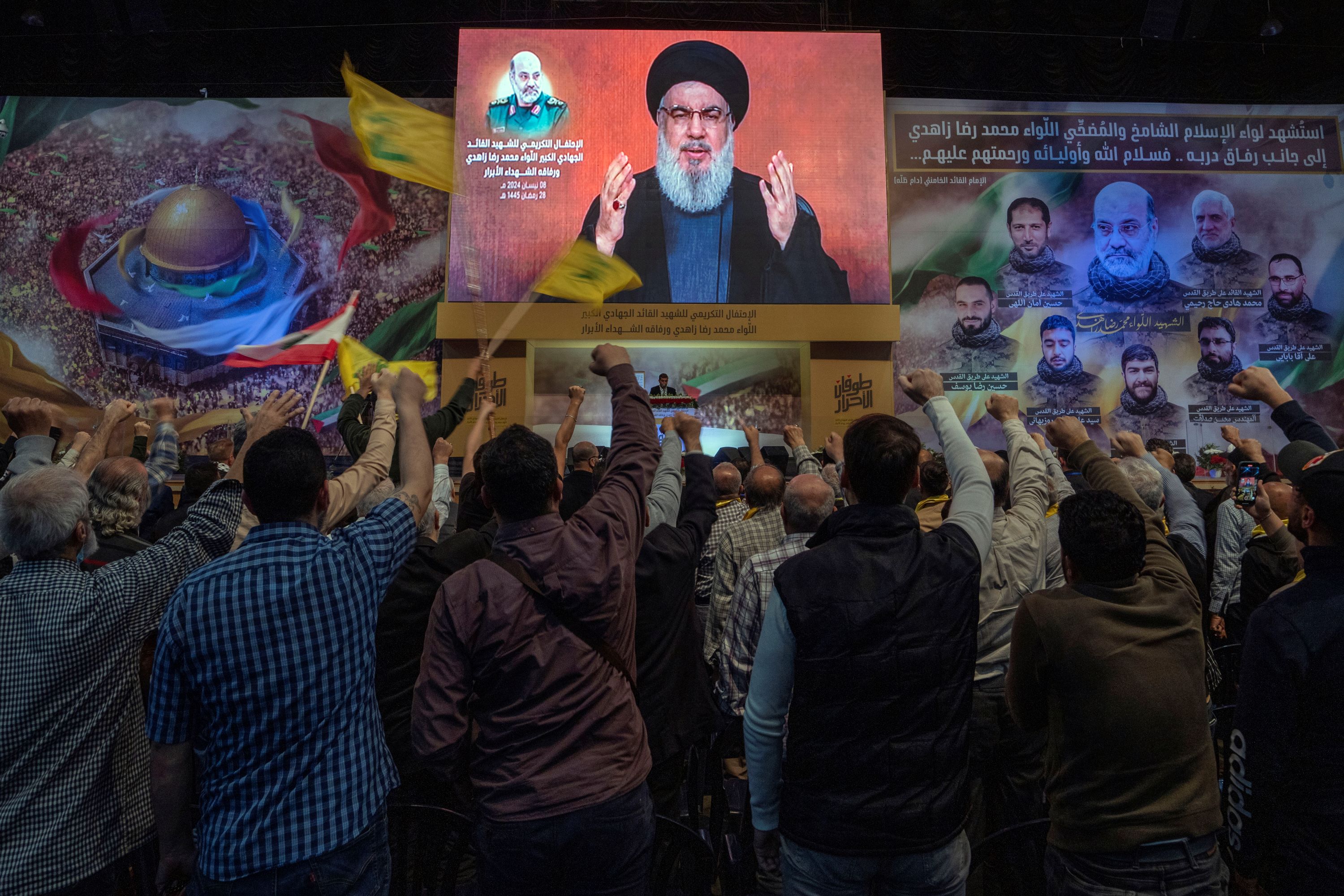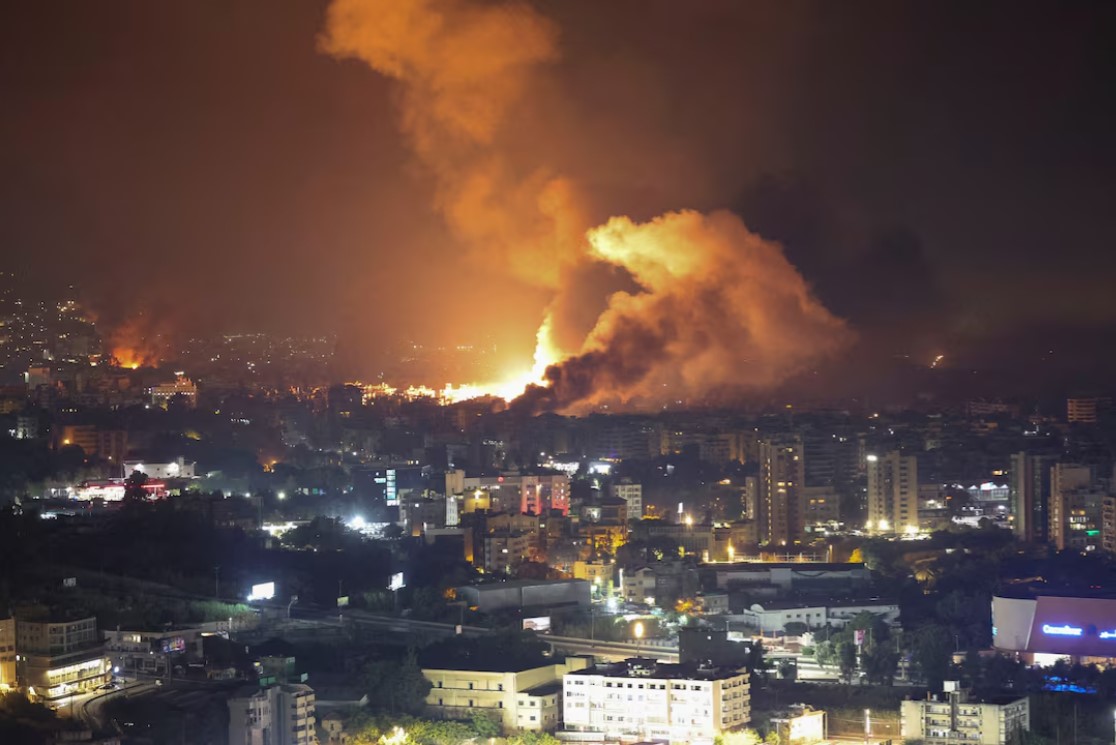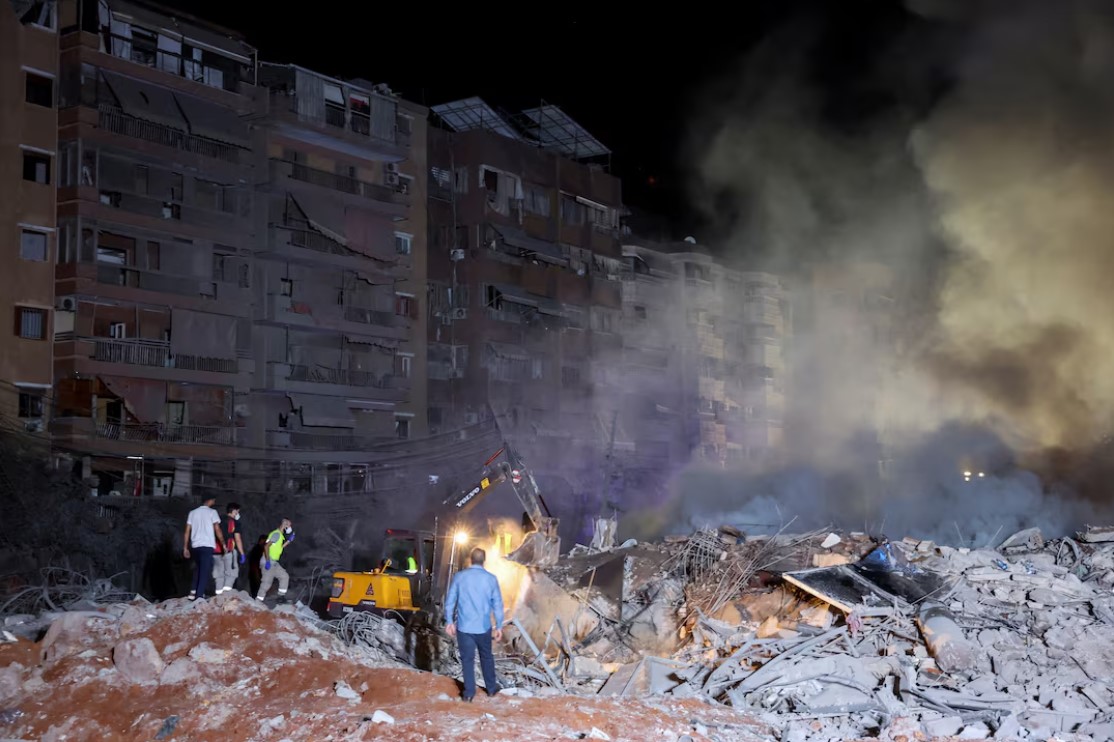
JERUSALEM/BEIRUT – Israel said on Saturday it had killed Hezbollah leader Sayyed Hassan Nasrallah in an airstrike in Beirut's southern suburbs a day earlier, in what would be a devastating blow to the group as it reels from an escalating campaign of Israeli attacks.
Reuters could not immediately reach Hezbollah officials for comment. Hezbollah has yet to issue any statement on the status of Nasrallah, its leader for 32 years.
The Israeli military said in a statement that Nasrallah was eliminated in a "targeted strike" on the group's underground headquarters under a residential building in Dahiyeh - a Hezbollah-controlled southern suburb of Beirut.
READ MORE: Lebanon condemns Israeli military actions, urges global intervention
It said he was killed along with another top Hezbollah leader – Ali Karaki – and other commanders.
"The strike was conducted while Hezbollah’s senior chain of command were operating from the headquarters and advancing terrorist activities against the citizens of the State of Israel," it said.
Friday's airstrike on Dahiyeh shook Beirut. A security source in Lebanon said the attack – a quick succession of massively powerful blasts – had left a crater at least 20 meters deep.
The attack, followed on Saturday by further airstrikes on Dahiyeh and other parts of Lebanon, have escalated the conflict between Israel and Hezbollah.

The escalation has sharply increased fears the conflict could spin out of control.
Late on Friday, a source close to Hezbollah told Reuters that Nasrallah was not reachable.
ALSO READ: Thousands flee to Syria amid Israeli airstrikes in Lebanon
In the first hours after Friday's strike, a source close to Hezbollah told Reuters that Nasrallah was alive. Iran's Tasnim news agency also reported he was safe. A senior Iranian security official told Reuters that Teheran was checking his status.
Israel followed up on Friday's attack with a new wave of airstrikes on Beirut's southern suburbs and other areas of Lebanon on Saturday.

Fear the fighting will spread
Hezbollah has fired hundreds of rockets and missiles against targets in Israel, including Tel Aviv. The group said it fired rockets on Friday at the northern Israeli city of Safed, where a woman was treated for minor injuries.
Israel's air defense systems have ensured the damage has so far been minimal.
Iran, which said Friday's attack crossed "red lines", accused Israel of using US-made "bunker-busting" bombs.
US Defense Secretary Lloyd Austin said Washington was not informed of that strike beforehand. President Joe Biden was being kept abreast of developments.
At the UN, where the annual General Assembly met this week, the intensification prompted expressions of concern including by France, which with the US has proposed a 21-day ceasefire.
READ MORE: Official: Israeli airstrike kills 5 Syrian soldiers in border region
"This must be brought to an end immediately," French Ambassador Nicolas de Riviere told a Security Council meeting.
At a New York press conference, US Secretary of State Antony Blinken said: "We believe the way forward is through diplomacy, not conflict... We will continue to work intentionally with all parties to urge them to choose that course."
Hezbollah opened the latest bout in a decades-long conflict with a missile barrage against Israel immediately following the Oct 7 attack on Israel by the Palestinian militant group Hamas in Gaza last year.


